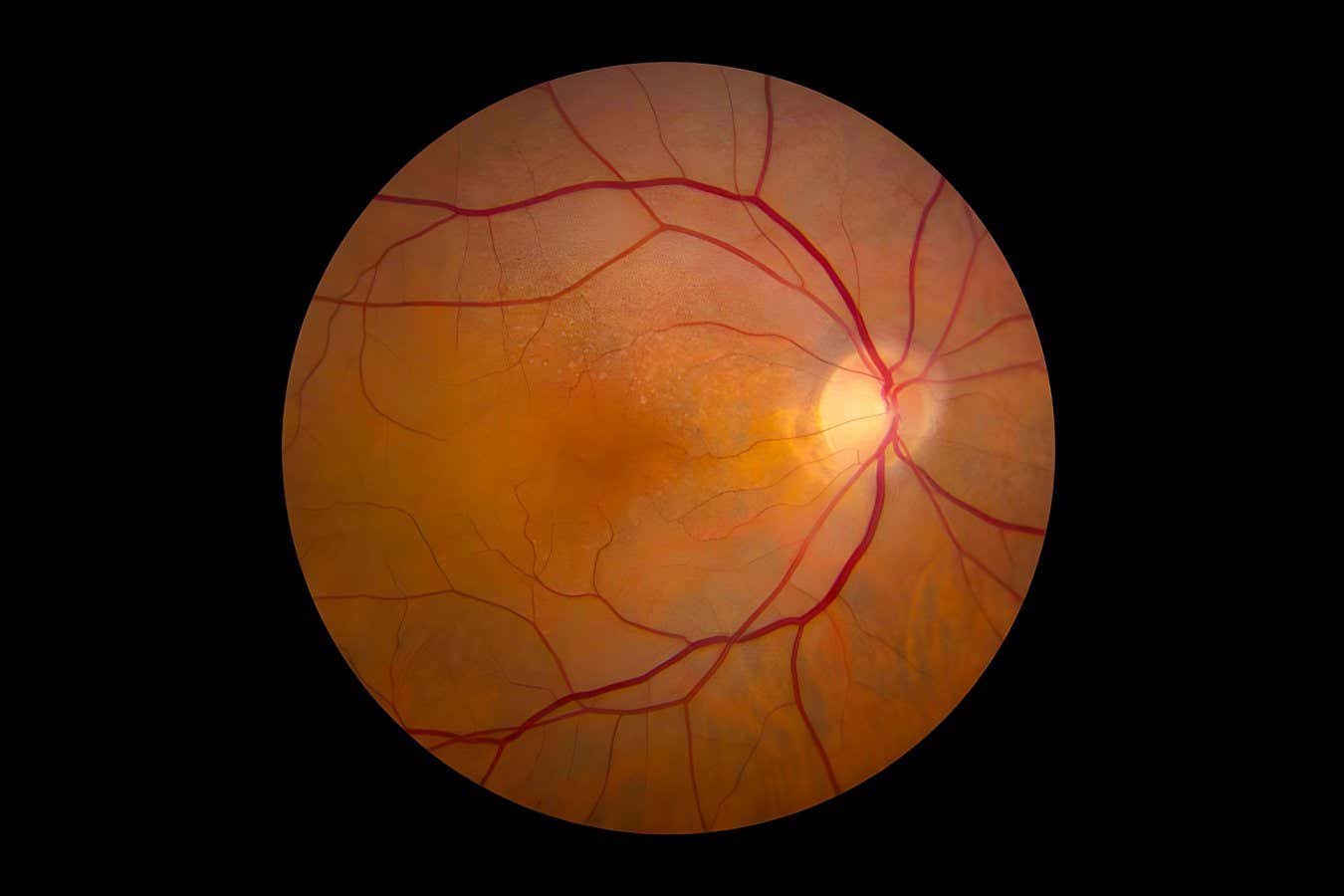Health
Metallic nanoparticles injected into the retina partly restored vision in blind mice and could work as a treatment for conditions that damage light-sensitive cells in the eye
By Carissa Wong

Damage to the retina at the back of the eye can lead to blindness
BSIP SA/Alamy
A retinal implant has partly restored vision in blind mice, suggesting it could one day benefit people with conditions such as age-related macular degeneration, which involves a progressive loss of light-sensitive cells from the retina.
Shuiyuan Wang at Fudan University in China and his colleagues designed a retinal prosthesis made of metallic nanoparticles that can take over the function of lost retinal cells, turning light into electrical signals that can be transmitted to the brain through nerves.
To test the prosthesis, the team injected the particles into the retinas of mice that had been genetically engineered to develop near-complete blindness.
The researchers restricted the animals’ access to water for three days, doing the same for mice with typical vision and blind mice without the prosthesis. Next, they trained all the mice to touch a 6-centimetre-wide circle on a screen if they wanted water.
After training, all of the mice completed 40 test trials each. Mice with complete vision were successful at pressing the button 78 per cent of the time. Those with implants succeeded 68 per cent of the time, while untreated blind mice managed it only 27 per cent of the time. “It’s a very clear effect,” says Patrick Degenaar at Newcastle University in the UK, who wasn’t involved in the study.
Two months later, the researchers found minimal signs of toxicity in the eyes of mice with the implants – but longer-term safety data is needed, says Degenaar. “To get this to clinic, you’re going to have to do a long-term animal trial for about five years,” he says.
“People with age-related macular degeneration and retinitis pigmentosa could benefit from [the prosthetic],” says Leslie Askew at the University of Surrey, UK, who wasn’t involved in the study.
Degenaar says it will be difficult to justify the approach in people with age-related macular degeneration, however, as they usually have a level of sight that wouldn’t be worth risking by implanting the prosthetic.
What’s more, mice have much poorer vision than humans, so it is unclear how this might benefit people until clinical trials are done, he says.
Topics:
























